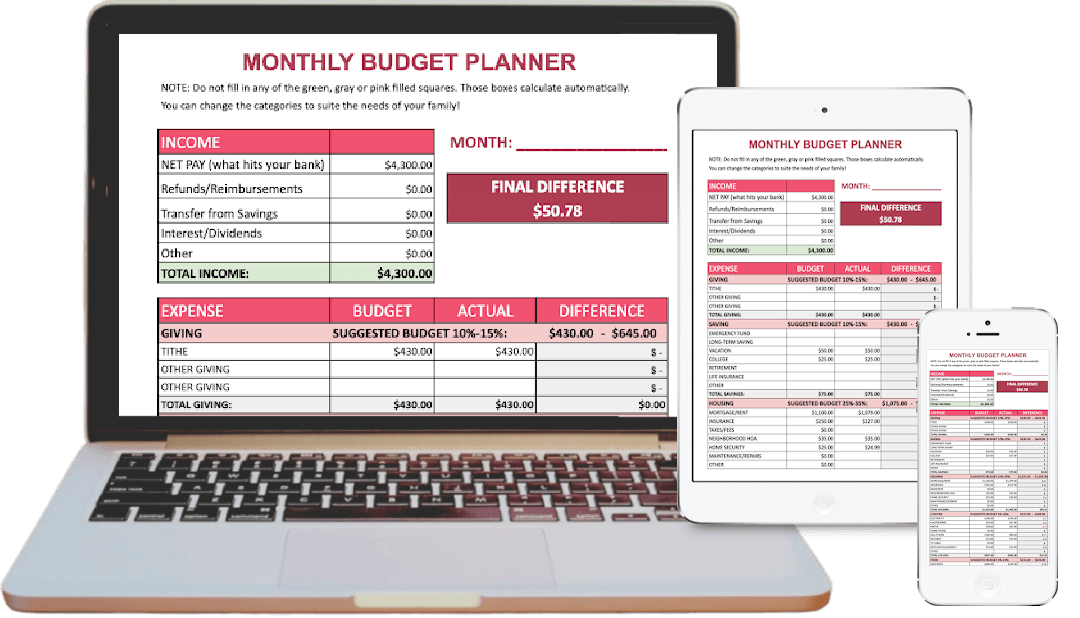 The thrill of the new year might be starting to wear off, and now you might begin to question those SMART financial goals that you set back in January.
The thrill of the new year might be starting to wear off, and now you might begin to question those SMART financial goals that you set back in January.
Those extra hundreds you were putting into savings might not last much longer, and you might start to feel like the financial goals you set aren’t helping you create the bigger picture you had imagined.
Most goals and resolutions won’t make it to Valentine’s Day and not all of them are because we don’t feel motivated to pursue them.
If you’re finding yourself in a financial goal rut, it might be because the goals you set for yourself didn’t really matter to you in the first place!
You can easily create some SMART financial goals for yourself when you determine what is really important to you and your financial future.
These setting financial goals tips will quickly get you started on setting up your financial goals for this year.
Then, by starting your financial goals list you’ll determing which goals are important enough to go after.
If you want to set goals that are in line with your values and that matter to you, here is what you need to know.

What Are SMART Financial Goals?
A SMART goal just isn’t any regular goal. A SMART goal is:
Specific – A thing that can be measured and is your specific problem or goal to achieve.
Measurable – Your goal that want to achieve needs to be measured to be proven, disected so it can be broken down into steps, and to be identifialbe so that the action steps you take can be labeled for success.
Achievable – This goal may seem daunting or large, but with hard work you can achieve it.
Realistic – This goal is doable. Creating an action plan will help you see the steps to achieve it.
Time Sensitive – Your goal will need time boundaries to keep you motivated to complete it.
BONUS FREE DOWNLOAD

Create A Plan For Your Money
These FREE Budgeting Spreadsheets will help you keep a pulse on your money (from the palm of your hand).
Example:
Basic Goal: I need to save money.
SMART Goal: I need to save $50 each week in order to save up $2600 to buy new appliances with cash by next January. I will put cash aside each week and add it to my second savings account. I need to save $50 each week, $1,300 in 6 months to have $2,600 in a year.

Ask Yourself What It Is You Really Want
The first step to setting SMART financial goals that matter to you is deciding what it is you want. Big goals come with significant sacrifices, and it might take a long time and a lot of work to get there.
If you are setting big goals that don’t matter, you won’t have what it takes to reach them. The distractions to overspend and spend your money elsewhere are always going to win.
Sit down and do a little soul-searching. Figure out what it is that you want your life to look like. If you don’t feel a bit vulnerable, you may not be searching hard enough.
Once you know what you want, you can start to make those significant changes.
Start asking yourself about what your goals could be?
- To create a budget
- Pay down or eliminate debt
- Create an emergency fund
- Stop overspending
- To travel more
- To help your family financially

What Is Your Why?
Once you know what you want and have a direction of where you want your life to go, it’s time to set your SMART financial goals and find your way. Saving money isn’t a bad goal, but if you’re not doing it for the right reason, then it’s not worth pursuing right now.
Any goal you might have can be valuable if it directly aligns with what you want. You are more likely to stick to your goal if it has a purpose or reason behind it.
If you’re going to learn to live on 50% of your income, you have to have a plan and a purpose behind it, or you won’t be able to stick with it.
Think about your spouse coming home to stay with the kids, the debt you could pay off, that dream vacation, or the early retirement that could be on your horizon. Those are all better motivating factors than just because you should save.

Create An Action Plan And Accountability Steps
It’s not enough to set your SMART financial goals and write them down; you have to do something about them.
Conquer your goals by creating actionable steps you can take and take action on them!
- You can start by setting up an automatic savings account.
- Set a reminder on your phone to transfer money out of your paycheck.
Once you start, you’ll find it hard not to keep moving forward.
If you struggle with motivating yourself to work on something, just start. You may find it easier to keep going once you have started.
Start by creating your action plan. Then get to work.

Set Up Your Goals And A Timeline
In order to see progress which will help you to keep going after your smart financial goals, you have to set goals. Small ones, medium ones and even large ones.
These goals will help you start the process of obtaining your goals but in doable, sizable chunks.
BONUS FREE DOWNLOAD

Create A Plan For Your Money
These FREE Budgeting Spreadsheets will help you keep a pulse on your money (from the palm of your hand).
Intermediate Goals: Save $1,300 in 6 months and add to savings.
Long-Term Goals: Save $2,600 in a year and add to savings.
Not only should you set up your goals, but a timeline of how and when they should be met.
Grab a FREE timeline printable to use to set up your goals.

Cut Something Out
You are in a limited time frame here, and that means you can’t do it all. When it comes to your goals and what matters to you, you are likely going to have to sacrifice something to reach your goal.
If watching TV or playing video games isn’t going to get you further toward your goal, then stop watching TV or playing video games and start working on your goal instead.
We all have something in our daily lives we can cut to help us work toward our goals; you just need to find out what it is.
As you can see, you can easily create some SMART financial goals for yourself when you determine what is really important to you and your financial future.
And, these setting financial goals tips can quickly get you started on setting up your financial goals for this year.
Then, by starting your financial goals list you’ll determing which goals are important enough to go after.
Setting goals can be challenging and having bad influences around you can encourage you to set goals you don’t care about.
Follow these setting financial goals tips to help you not only set goals that matter but achieve them too.
YOUR TURN: Let me know some of your goals in the comments below! Do those smart financial goals matter more to you now to go after them?





